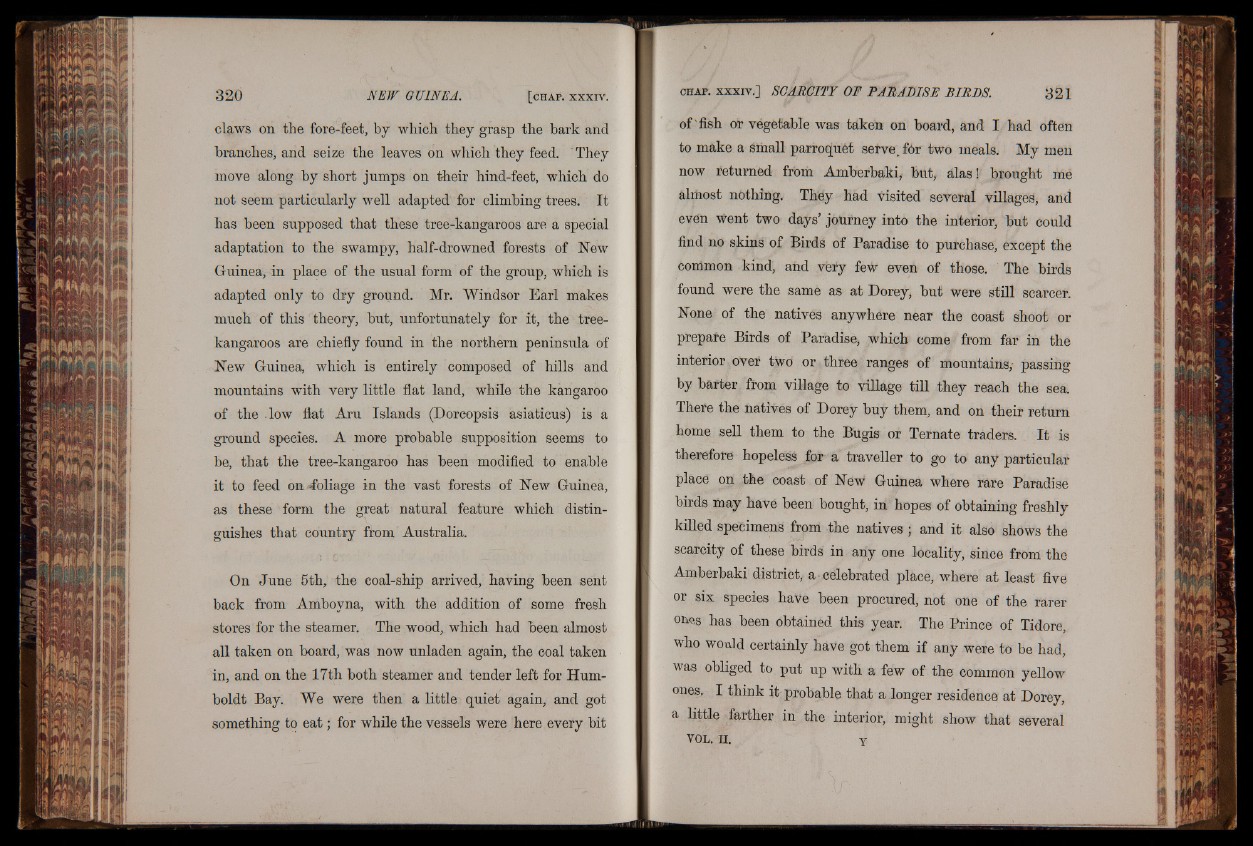
claws on the fore-feet, by which they grasp the hark and
branches, and seize the leaves on which they feed. They
move along by short jumps on their hind-feet, which do
not seem particularly well adapted for climbing trees. It
has been supposed that these tree-kangaroos are a special
adaptation to the swampy, half-drowned forests of New
Guinea, in place of the usual form of the group, which is
adapted only to dry ground. Mr. Windsor Earl makes
much of this theory, but, unfortunately for it, the tree-
kangaroos are chiefly found in the northern peninsula of
New Guinea, which is entirely composed of hills and
mountains with very little flat land, while the kangaroo
of the .low flat Aru Islands (Dorcopsis asiaticus) is a
ground species. A more probable supposition seems to
be, that the tree-kangaroo has been modified to enable
it to feed on 'foliage in the vast forests of New Guinea,
as these form the great natural feature which distinguishes
that country from Australia.
On June 5th, the coal-ship arrived, having been sent
back from Amboyna, with the addition of some fresh
stores for the steamer. The wood, which had been almost
all taken on board, was now unladen again, the coal taken
in, and on the 17th both steamer and tender left for Humboldt
Bay. We were then a little quiet again, and got
something to e a t; for while the vessels were here every bit
of'fish oi* vegetable was taken on board, and I had often
to make a small parroquet serve, for two meals. My men
now returned from Amberbaki, but, alas! brought me
alihost nothing. They had visited several villages, and
even went two days’ journey into the interior, but could
find no skinS of Birds of Paradise to purchase, except the
common kind, and very few even of those. The birds
found were the same as at Dorey, but were still scarcer.
None of the natives anywhere near the coast shoot or
prepare Birds of Paradise, which come from far in the
interior over two or three ranges of mountains, passing
by barter from village to village till they reach the sea.
There the natives of Dorey buy them, and on their return
home sell them to the Bugis or Ternate traders. It is
therefore hopeless for a traveller to go to any particular
place on. the coast of New Guinea where rare Paradise
birds may have been bought, in hopes of obtaining freshly
killed specimens from the natives ; and it also shows the
scarcity of these birds in any one locality, since from the
Amberbaki district, a-celebrated place, where at least five
or six species have been procured, not one of the rarer
ones has been obtained this year. The Prince of Tidore,
who would certainly have got them if any were to be had,
was obliged to put up with a few of the common yellow
ones. I think it probable that a longer residence at Dorey,
a little farther in the interior, might show that several
VOL. II. Y